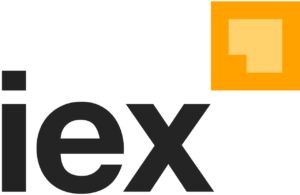
(Image via Wikipedia/Public Domain)
Mobutu Sésé Seko was the president and military dictator of Zaire, which is now the Democratic Republic of the Congo, from 1965 to 1997. He became infamous for nepotism, corruption, and embezzlement, as well as assorted human rights violations, and is credited with saying:
If you want to steal, steal a little cleverly, in a nice way. Only if you steal so much as to become rich overnight, you will be caught.
Mobutu ruled for a further two decades after offering that quote.
Across an ocean, in an entirely different time and place, the sentiment behind that statement hums along as a quasi-respectable business model.
You can’t just walk down to the corner pawnshop to buy or sell a stock. You need an exchange. But the trades that occur on stock exchanges are vulnerable. One example of this is that so-called high-speed trading firms can predict miniscule stock price moves using algorithms. When a large stock purchaser makes a bid, before the deal can pass at the speed of light to all the places it has to go in order to capture all the chunks of the total order of stock, a high-speed trading firm has detected the first move, used it to predict the second, third, and fourth moves, and seized a handful of the deal in the meantime, to profit from the difference between bids and offers.
This is all explained much more thoroughly and eloquently in the book Flash Boys, by Michael Lewis. But the remarkable thing about that book and the people in it is that once they learned about this loophole and others like it, rather than exploit the vulnerabilities of the system themselves, they sought to fix things.

Chrometa: Turning Time Into Billable Value For Modern Lawyers
Adoption of Chrometa represents more than a technological upgrade; it reflects a professional philosophy that values accuracy, transparency, and efficiency.
The result was IEX, the Investors Exchange. IEX is a stock exchange for American equities with a stated mission of building fairer markets. Right now, IEX is a somewhat small player, but it is pretty directly taking on the goliaths in the room — the New York Stock Exchange, Nasdaq, and Cboe (owner of the Bats markets).
Right now, IEX is targeting the arbitrary fees the big exchanges charge for basic access to equities markets. IEX published a report in January that found the entrenched exchanges were overcharging for market data at estimated markup levels of as much as 1,800 percent. The big exchanges were also overcharging for connectivity with stratospheric markups of over 4,000 percent.
John Ramsay, Chief Market Policy Officer of IEX, followed up on the big exchanges’ response to the IEX study with a cheeky blog post:
The exchanges answered our study with a detailed disclosure of their own costs and a thoughtful analysis of data and connectivity prices. Just kidding! Of course they didn’t do that. Instead, they predictably deflected from discussing market data cost burdens by fabricating something they call an “all-in” cost to trade.
What is “all-in” cost?
Essentially, the way that exchanges calculate an “all-in” cost is by adding up all the fixed costs of the type we described in our study and combining them with variable transaction fees, which are heavily affected by rebates and pricing tiers provided to some of their members, to come up with an average cost per share. Why complain about the fixed costs, they seem to say. When you mash all the fees together, we’re actually a great bargain!
Well, the Securities and Exchange Commission is not asleep at the wheel. While there is no word on whether the move was made in direct response to IEX goading its larger competitors, the SEC has notified the big exchanges that they must clearly describe and justify how they set their fees, including how they charge for market data and connectivity, lest they risk violating the Exchange Act. Not one to remain silent, IEX said to Reuters in response to the new SEC guidance:
We applaud the Commission’s efforts to hold exchanges accountable for justifying the fees they charge for market data and connectivity – services where exchanges have rightly been criticized for exerting monopoly pricing power.
This all probably seems very convoluted, and very far removed from your day-to-day life, and it is. But it’s important nonetheless. The stock market exchanges are your retirement account. They’re your kid’s college fund. They’re the health of our entire economy, and our entire country. A few pennies on an individual stock trade doesn’t seem like much, and you won’t notice it in your own investment account. But add that up again, and again, and again, for years, for millions of investors, and the impact is easily in the billions. This is costing all of us. There is no reason for exchanges to be allowed to keep the justifications for their fees opaque, beyond allowing them to continue following Mobutu Sésé Seko’s basic business model. IEX, and the SEC, should be applauded for continuing to help promote fairer markets for all of us. It might not be wildly profitable, but it’s the right thing to do.
Jonathan Wolf is a litigation associate at a midsize, full-service Minnesota firm. He also teaches as an adjunct writing professor at Mitchell Hamline School of Law, has written for a wide variety of publications, and makes it both his business and his pleasure to be financially and scientifically literate. Any views he expresses are probably pure gold, but are nonetheless solely his own and should not be attributed to any organization with which he is affiliated. He wouldn’t want to share the credit anyway. He can be reached at [email protected].
